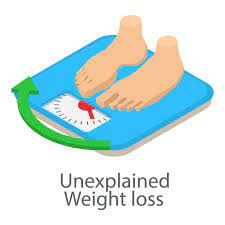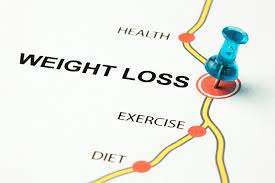
- Blog
-
by Murshida Khanam
Inadequate weight loss Just like a car can’t run efficiently on an empty tank, your body can’t function optimally when it’s underweight. Your immune system may weaken, making you more susceptible to illnesses. You may lack the energy needed for daily activities, muscles may weaken, bones may become more fragile, it can also affect your cognitive function making it harder to focus and think clearly.
So, having less weight can impact your over all well-being.
It’s essential to understand the reason behind it because it can be an indicator of various factors, whether it’s intentional, due to health challanges or other life circumstances.
Why behind weight loss
Certain medical condition can lead to unintentioanl weight loss. These conditions include:
Hyperthyroidism: thyroid hormones, particularly thyroxine(T4) and triiodothyronine(T3), play a key role in controlling the body’s metabolism. When there is an excess of these hormones, the metabolic rate increases significantly. This means your body burns calories at a much faster than usual.
It can lead to changes in appetite. In some individuals with the condition may have an increased appetite, but due to the accelerated metabolism, they may still lose weight. Others may experience a reduced appetite.
Gastrointestinal disorders: when your body doesn’t absorb essential nutrients properly, it can result in weight loss, malnutrition, and nutrient deficiencies, even if you’re eating enough calories. Digestive disorders like celiac disease, Crohn’s disease, or irritable bowel syndrome(IBD) can affect nutrient absorption and lead to weight loss.
Uncontrolled diabetes can cause weight loss due to excessive urination and calorie loss. apart from this, some cancer can cause loss of appetite, changes in metabolism, or cancer-related treatments can lead to weight loss.
Mental health issues: stress, depression and anxiety, can impact appetite. Some individuals may experience a loss of appetite when they are going through a difficult emotional or psychological period. This can lead to decreased calories intake and subsequent weight loss.
Poor diet: inadequate calorie intake, nutrient deficiencies, or restrictive diets can lead to unintentional weight loss.
When you consume more calories than your body burns, you gain weight.
When you consume fewer calories than you body burns, you lose weight.
To gain weight, you need to consume more calories than your body burns, creating a caloric surplus. This excessive energy than stores as body fat.
however, it’s crucial to aim for healthy weight gain by focusing on nutrient-dense foods rather than empty calories.
There can be other conditions apart from this, such as drug addiction, certain medications, hypermetabolic states, inflammatory conditions, aging or so on.
Few tips to gain weight
- Focus on a nutrient-dense foods that provide essential vitamins and minerals along with calories. You need to consume more calories than your body burns in a day.
You can add lean meats, fish , nuts, seeds, whole grains carbohydrate, fruits such as avocados, soya bean, lentils and so on.
- Aim for five to six smaller meals throughout the day.
- increase protein intake in your diet include chicken, turkey, dairy products, eggs etc.
- Drink enough water throughout the day to stay hydrated.
- Exercise regularly to increase muscle mass.
- Practice stress reduction techniques like mindfulness, yoga or meditation.
At the end, i would like to advise for health-related matters, it would be beneficial for you to contact a qualified doctor or a nutrition expert. Their guidance and support can be crucial on your journey to better health and weight gain.









